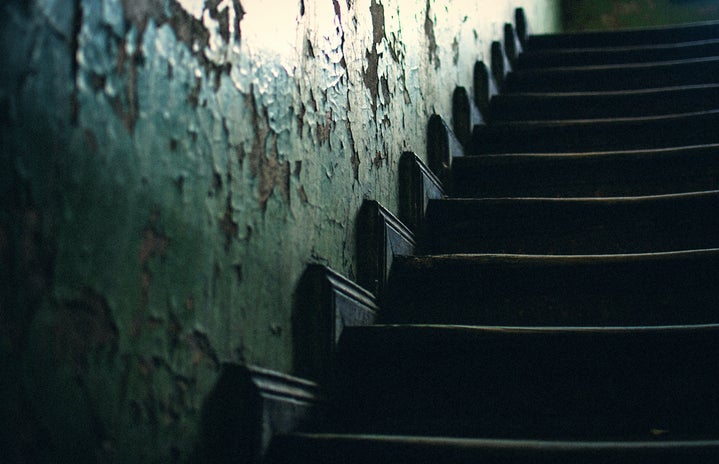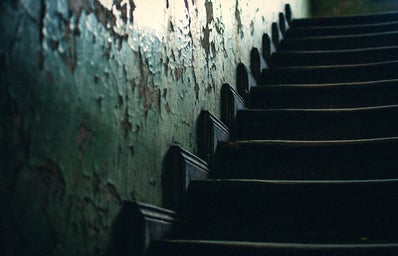Horror films make people jump, scream, lose sleep and even leave the movie theatre! But why do we have these reactions to these movies? What makes them so different from normal movies? Horror films are designed to play with our minds. Directors and writers of these movies use psychological tactics to arise a sense of fear from the viewer. Psychology is what makes scary movies scary.
Horror filmmakers integrate stereotypical subconscious and childhood fears into their movies. These fears include fear of the dark (which is why most killings in Wes Craven’s “Scream” take place at night), fear of dangerous weather (which is why Brad Peyton’s “San Andreas” evokes a sense of fear, even though it’s an action film, not a horror film), fear of people who are “different” (which is why Hannibal Lecter in Jonathan Demme’s “Silence of the Lambs” creeps you out without ever leaving his cell), fear of dying (which is why the deaths in David Ellis’ “Final Destination” stick in your mind long after you’ve watched the film) and fear of insects and animals such as spiders, snakes, rats, centipedes, etc (which is why Frank Marshall’s “Arachnophobia” makes your skin crawl- no pun intended). When these fears are presented, it often triggers your flight or fight response in your sympathetic nervous system if you’re afraid of those things. This fight or flight response increases your heart rate, heightens your awareness, speeds up your breathing and increases your adrenaline. All these things happen when you watch a scary movie!
Horror filmmakers also use anticipation to their advantage (and you’re disadvantage). Anticipation is what happens when your mind draws information from your past experiences to predict what’s going to happen next. Anticipation usually evokes a feeling of anxiety. Anxiety also causes your fight or flight response to be triggered. It is during this anticipation and anxiety that filmmakers often use jump scares — a tactic where the audience is surprised with an abrupt change in image, often accompanied by a loud noise or scream. This jump scare counteracts what your mind was anticipating, which often evokes an extreme physical reaction, usually a jump or a scream (or both), out of you!
Horror filmmakers use sound to create fear in you. The sounds they use create a sense of fear in you that’s instinctual. These sounds include creaking stairs, screaming, murmuring or whispering, crunching leaves in the woods, etc. These are all noises that, if you heard them in your everyday life, you would immediately be weary that someone was near and that you may be in danger. This weariness also activates your fight or flight response, creating those physical aspects of being afraid. Low pitched and high pitched notes and dissonance are often used in soundtracks to create fear too. These low and high notes and dissonance aren’t commonly heard in everyday music, so they’re unfamiliar to us, preying on the common fear of things that are “different.” Next time you watch a scary movie, try muting it. It’s not nearly as scary without the sound.
Certain filmmakers use pavlovian conditioning methods to evoke a sense of fear. Sean Cunningham does this in “Friday the 13th.” The film series iconic sound “ki ki ki ma ma ma” indicates that Jason (or his mother, if you’ve seen the series) is near and is preparing to kill. The first time this happens, you probably aren’t sure what it means but you have some type of apprehension about the noise. After you’ve watched the movie, whenever you hear “ki ki ki ma ma ma” your brain immediately thinks about Jason Vorhees. Sean Cunningham managed to train “Friday the 13th” fans to associate an otherwise meaningless noise with a serial lake murderer. This is exactly how Ivan Pavlov, a famous psychologist, trained his dogs to salivate to a bell, even without food.
Horror filmmakers are modern day psychologists, whether they’re aware of it or not, and we are their test subjects. The psychological toll that a film takes on us is what determines just how scary a scary movie truly is. By honing in our common childhood fears, using our forward thinking minds against us, and using soundtracks as their weapon, they’re able to provoke an involuntary physical response from us. So, really, we are what makes scary movies scary, our minds are the biggest fear factor.


